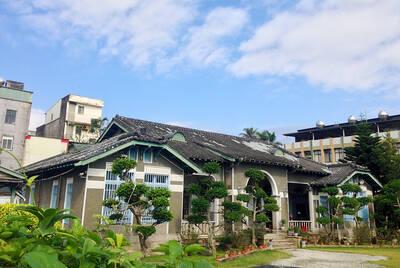WOW Woolloomooloo Out West will screen a number of short documentaries tomorrow and Sunday that examine film and video after punk. The mini festival, This is Now, is a touring program from the British Film Institute that features digitally remastered underground films and music videos from the post-punk era in the UK from 1979 to 1985.
The title of tomorrow’s viewing is Video Killed the Radio Star (錄影殺死了廣播明星), and the documentaries include Echo and the Bunnymen: Shine So Hard (1981), The Miners’ Campaign Tapes: The Lie Machine (1984) and The Greatest Hits of Scratch Video Volume 2 (1984).
Sunday afternoon brings you Hope Taping (家庭錄影) with highlights such as The Attitude Assumed: Still Life With Still Born (1980), Pop Dolphin (1983), Skinheads and Roses (1983) and The Commander in Chief (1984).

Photo courtesy of Wikimedia commons
Through a Glass, Darkly (穿越暗黑中的玻璃) is the title of the Sunday evening viewing with Winter Journey in the Hartz Mountains (1983), All Veneer and No Backbone (1980-84), Grayson/Flowers/Jewels (1985) and Lyrical Doubt (1984).
■ WOW Woolloomooloo Out West, 2, Ln 120, Wenchang St Sec 2, Taipei City (台北市武昌街二段120巷2號).
■ Tomorrow at 6:30pm, and Sunday at 2:30pm and 4pm. Tickets are NT$180 for each session, available through www.indievox.com and at 7-Eleven ibon kiosks

When life gives you trees, make paper. That was one of the first thoughts to cross my mind as I explored what’s now called Chung Hsing Cultural and Creative Park (中興文化創意園區, CHCCP) in Yilan County’s Wujie Township (五結). Northeast Taiwan boasts an abundance of forest resources. Yilan County is home to both Taipingshan National Forest Recreation Area (太平山國家森林遊樂區) — by far the largest reserve of its kind in the country — and Makauy Ecological Park (馬告生態園區, see “Towering trees and a tranquil lake” in the May 13, 2022 edition of this newspaper). So it was inevitable that industrial-scale paper making would

July 21 to July 27 If the “Taiwan Independence Association” (TIA) incident had happened four years earlier, it probably wouldn’t have caused much of an uproar. But the arrest of four young suspected independence activists in the early hours of May 9, 1991, sparked outrage, with many denouncing it as a return to the White Terror — a time when anyone could be detained for suspected seditious activity. Not only had martial law been lifted in 1987, just days earlier on May 1, the government had abolished the Temporary Provisions Effective During the Period of National Mobilization for Suppression of the Communist

Hualien lawmaker Fu Kun-chi (傅?萁) is the prime target of the recall campaigns. They want to bring him and everything he represents crashing down. This is an existential test for Fu and a critical symbolic test for the campaigners. It is also a crucial test for both the Chinese Nationalist Party (KMT) and a personal one for party Chairman Eric Chu (朱立倫). Why is Fu such a lightning rod? LOCAL LORD At the dawn of the 2020s, Fu, running as an independent candidate, beat incumbent Democratic Progressive Party (DPP) lawmaker Hsiao Bi-khim (蕭美琴) and a KMT candidate to return to the legislature representing

Asked to define sex, most people will say it means penetration and anything else is just “foreplay,” says Kate Moyle, a psychosexual and relationship therapist, and author of The Science of Sex. “This pedestals intercourse as ‘real sex’ and other sexual acts as something done before penetration rather than as deserving credit in their own right,” she says. Lesbian, bisexual and gay people tend to have a broader definition. Sex education historically revolved around reproduction (therefore penetration), which is just one of hundreds of reasons people have sex. If you think of penetration as the sex you “should” be having, you might